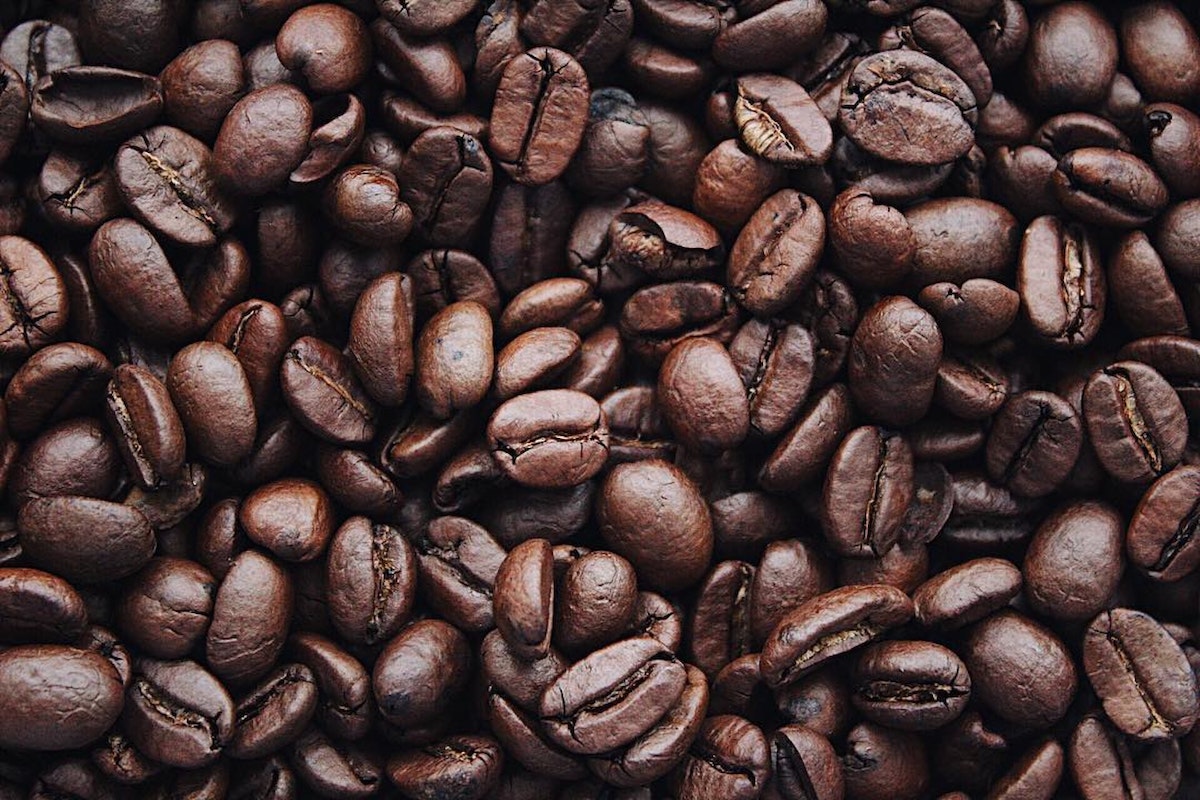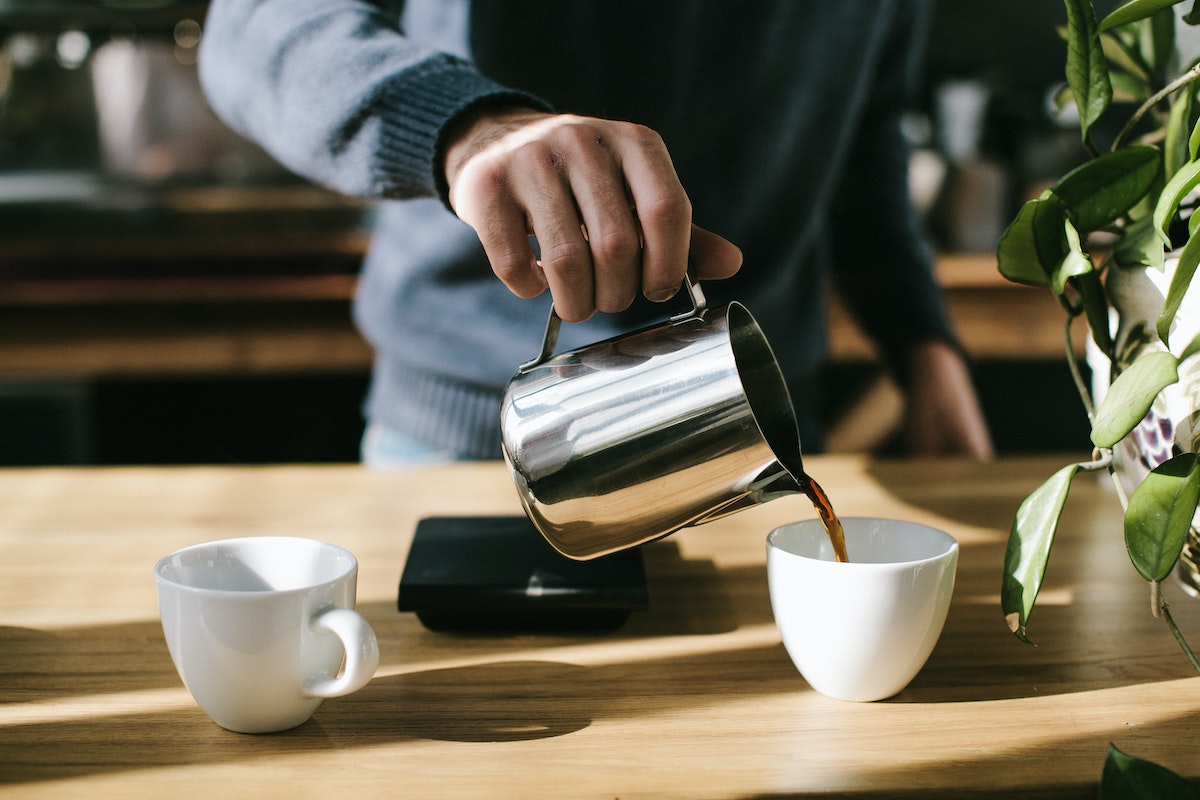
Is coffee bad for teeth? You may not want to know the answer, preferring to “Hear no evil, see no evil.”
After all, drinking coffee can be a lifeline during the morning grind. Even studies show coffee consumption can have significant benefits. A 2021 study showed that drinking coffee could decrease stroke and dementia risk. Another published in the same year found coffee consumption could lower a person’s chance of heart failure.
According to the National Coffee Association, this research is all good news for nearly two-thirds of Americans (62%) who drink coffee daily.
However, what does that mean for your pearly white teeth? Coffee has long been linked to discoloration and staining, but is the rumor true? We asked dentists. Let’s sink our teeth into their responses and learn more about preventing discoloration should you choose to keep your coffee habit.

Is coffee bad for teeth?
The short answer is yes — sorry.
“Coffee is heavily acidic, which can actually work to weaken teeth over time by causing them to be more brittle and susceptible to tooth and enamel erosion,” said Dr. Nicole Mackie, a Las Vegas-based prosthodontist and founder of Dental Implant Specialty Center. “Enamel erosion can lead to tooth discoloration, sensitivity and also has an increased risk of cavities.”

Does coffee stain your teeth?
Another yes. Regular coffee consumption will stain white teeth, turning them darker colors like yellow.
“Your teeth have tiny pores just like your skin,” said Dr. Lauren Becker, a Manhattan-based general and cosmetic dentist. “The dark color of the coffee, which comes from tannins, penetrates into the pores leaving behind intrinsic stains. This means the stains can’t be removed just by removing what’s on the surface.”

How long after you drink coffee should you brush your teeth?
You should wait about 30 to 60 minutes, Dr. Becker says.
You may think brushing ASAP after drinking coffee will help protect your pearly whites from the beverage’s acidity, warding off erosion. You may also hope your swift action prevents staining. However, you’ll actually exacerbate the effects of the acidity if you brush too quickly because you’ll spread the acid around. (If you put sugar in the coffee, you’ll spread that around, too, speeding up tooth decay.)
“Due to its high acidity, you want to wait to brush for 30-60 minutes post-consumption,” said Dr. Becker.
One note: Consider brushing your teeth after consuming coffee rather than before. Once the 30 to 60 minutes have passed and it’s safe to brush, doing so will help reduce erosion and decay risks.
You may find waiting 30 minutes — let alone a full hour – challenging, mainly if you drink coffee for the jolt more than the bitter taste. You may also want to prevent coffee breath.
Dr. Mackie suggests chasing coffee with water.
“Rinsing your mouth with water will help wash away any leftover coffee particles and reduce the amount of time the coffee pigments have direct contact with your teeth,” Dr. Mackie said. “This is important to mitigate the potential risk of staining.”
For best results, Dr. Mackie suggests:
- Finishing your cup of coffee.
- Take a few sips of water.
- Swish.
- Swallow.
“This will help dilute and remove any leftover coffee residue,” Dr. Mackie said. “Drinking water in general and staying hydrated can promote saliva production, which plays a very important role in maintaining oral health as well.”

Is there anything people can do regarding their coffee habits to reduce staining and impact their dental health?
You want white teeth, but you don’t want to stop drinking coffee. The problem is not a fun one to have. However, Dr. Becker says you can have your coffee and keep your teeth healthy, too.
“I’m not a monster, so I would never say, ‘Don’t drink coffee because it’s bad for your teeth,’ to my patients,” Dr. Becker said. “I say go for it, but make sure you are taking proper care of your teeth to avoid erosion and staining.”
What does proper care mean when for coffee and teeth? Dr. Becker and Dr. Mackie shared their top tips.
Add milk
Not a fan of black coffee? You may be doing your teeth some favors when you add milk.
“The lighter the coffee, the less the stain, so milk helps,” Dr. Becker says.
The reason? Milk serves as a diluent.
“[Milk] will reduce the concentration of coffee pigments that come into contact with your teeth,” Dr. Mackie said. “By adding milk to your coffee, you decrease the intensity of the staining potential.”
Use a straw
This tip may take some time, but your teeth will be glad you tried.
“Drinking coffee through a straw limits the contact time of the liquid on your teeth,” Dr. Becker said.
Remember the basics
Some of the best ways to protect against tooth enamel erosion, decay, and other issues stemming from coffee are the foundation for good dental habits.
“It is important to practice good proper hygiene, which includes brushing and flossing your teeth at least twice daily and regular dental cleanings, typically performed every six months,” Dr. Mackie says.
Go further
If some damage has already been done, you might need to up the ante on your at-home dental routine to tackle stains.
“At-home whitening strips can help mitigate some of the stain as well as professional take-home whitening kits from the dentist,” said Dr. Becker.
Finally, a dentist can help you reduce the appearance of staining with in-office treatments.
“I treat many patients with stained teeth who desire a whiter smile with in-office teeth whitening treatment where we apply a professional-grade bleaching agent to the teeth while using a laser to activate its dramatic teeth whitening properties,” Dr. Mackie says. “It’s generally the quickest and most effective way to achieve noticeable results in just a single visit.”
Talk to your provider if you’re concerned about the effects of coffee on your teeth to devise a game plan.
Editors' Recommendations
- How to whiten teeth at home: A guide to natural and OTC remedies for pearlier whites
- Did you know you can change your face shape without surgery? Here’s how




